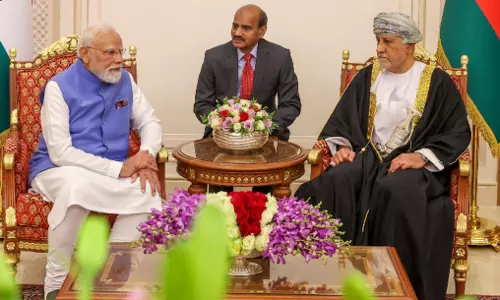
WhatsApp introduces ads in status, sparks criticism
text_fieldsMeta has officially announced the rollout of ads on WhatsApp, marking a major shift in the app’s business model and ending years of speculation about when the platform would introduce advertising.
The new features include advertisements in the Status section, Channel subscriptions, and tools to promote Channels — all confined to the Updates tab, not private messages.
The move is part of WhatsApp’s broader plan to support creators, organisations, and businesses while monetising its widely used platform.
According to the company, the Updates tab is accessed by 1.5 billion users every day — making it a strategic space for ads that do not interfere with personal messaging.
Ads will be integrated within the Status section, similar to Instagram Stories, allowing users to discover businesses and potentially initiate conversations around promoted products or services. These ads will not appear in personal chats.
Meta explained, “These new features will appear only on the Updates tab, away from your personal chats. This means if you only use WhatsApp to chat with friends and loved ones, there is no change to your experience at all.”
The company added that it will use limited personal data — such as country, city, language, followed Channels, and user interaction patterns — to tailor the advertisements. For users who’ve linked WhatsApp with Meta’s Accounts Center, ad preferences from across their Meta accounts may also be considered.
Despite the targeted nature of ads, WhatsApp has stressed that, “It will never sell or share your phone number to advertisers.” Furthermore, private messages, group chats, and calls will remain untouched by ad personalisation efforts.
In addition to ads, WhatsApp is introducing monthly subscription-based Channels. These allow users to support their favourite Channels and gain access to exclusive updates. Admins will also be given tools to promote their Channels and boost visibility.
Subscription payments will be processed via app stores, and Promoted Channels will help users discover more content based on their interests.
The announcement has sparked criticism across social media platforms. Many users expressed disappointment, accusing Meta of betraying WhatsApp’s original ad-free ethos.
"Stop the enshittification of WhatsApp!" one user wrote.
Another added, "Luckily, it's on a tab I never use. If they start to enshittyfy messages, I'm out at the first ad I see."
One of the most shared criticisms referenced a 2012 blog post by WhatsApp co-founder Jan Koum, where he firmly stated, “We want WhatsApp to be the product that keeps you awake... and that you reach for in the morning. No one jumps up from a nap and runs to see an advertisement.”
Koum also wrote, “Remember, when advertising is involved you the user are the product.”
When Meta (then Facebook) acquired WhatsApp in 2014 for $19 billion, it promised not to introduce ads. Now, more than a decade later, that promise appears to be broken.
Meta responded to the shift by reiterating its long-term vision: “We’ve been talking about our plans to build a business that does not interrupt your personal chats for years and we believe the Updates tab is the right place for these new features to work.”*
The monetisation strategy reflects Meta CEO Mark Zuckerberg’s effort to transform WhatsApp into a more business-friendly and revenue-generating platform, while attempting to keep its core messaging experience unaffected — for now.


















